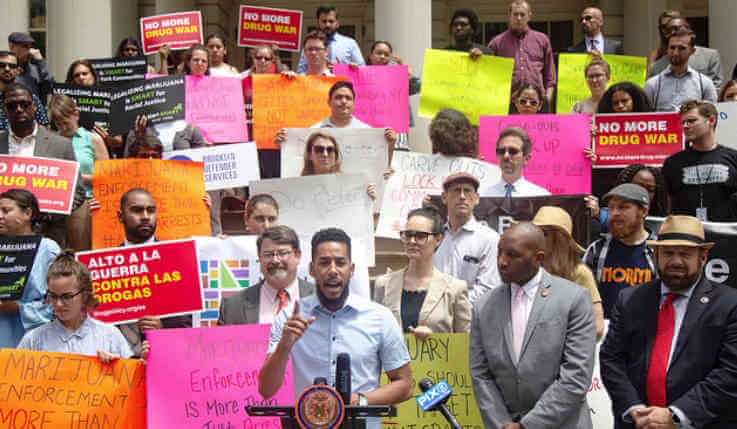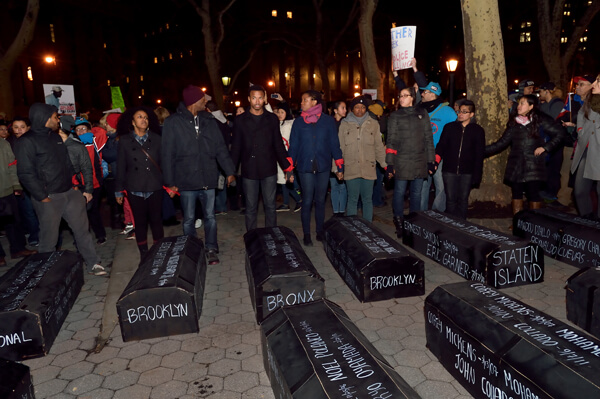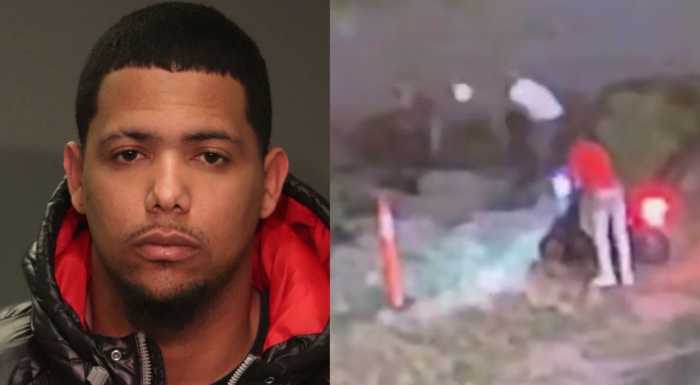Three city councilmembers warned late last month that the Police Department’s new marijuana arrest policy, which took effect on September 1, will not stop arrests of people of color.
Donovan Richards and Rory Lancman, both Queens Democrats, criticized the carve-outs in the city’s new policy of issuing summonses rather than arresting people for smoking pot in public. People without a prior criminal history who have identification will simply be given a criminal summons and be allowed to continue on their way.
But people with prior criminal histories will be treated more harshly. A person on parole or who has warrants for failure to appear or answer a summons will still go to jail. A parolee can be sent back to prison for toking on a joint.
According to a June New York Times story about the new policy, Police Commissioner James P O’Neil said, “If you have a propensity to commit crimes… the consequences should be higher.”
But marijuana arrests offer no public safety benefit, according to a study by Manhattan District Attorney Cyrus Vance. His office will not prosecute these crimes even if a person is held overnight.
Richards, who chairs the Council’s Public Safety Committee, knocked the policy with a bit of street wisdom.
“When white people smoke they can still go to Yale, when people of color smoke they go to jail,” he said.
Statistics show that 86 percent of the people arrested for pot in New York are people of color, and Lancman, who chairs the Committee on the Justice System, vented his frustration at Mayor Bill de Blasio, who has failed to acknowledge that focusing on a criminal history means harsh policies will fall primarily on people of color because white people don’t have comparable histories.
With obvious disgust, Lancman said that “the fact that the mayor does not see this” is inexplicable.
Councilmember Antonio Reynoso from Brooklyn joined Richards and Lancman at the August 30 news conference on the City Hall steps in calling for legalization of adult use of marijuana and wiping prior pot arrests off the books.
Legal Aid attorneys from the Bronx and Brooklyn warned that the city’s Administration for Children’s Services still investigates parents who use pot and that the arrests and fingerprint checks left immigrant New Yorkers vulnerable to deportation actions by ICE.
The June story in The Times reported, “The new policy, which will take effect on September 1, will not curb police officers’ power to stop and search people who they think are smoking marijuana. And because it exempts from the no-arrest policy certain people with criminal records, many of them black, it is unlikely on its own to shift the focus of marijuana enforcement away from the nonwhite New Yorkers who have for decades been the targets of arrests.”





























